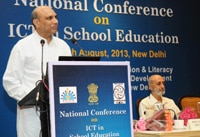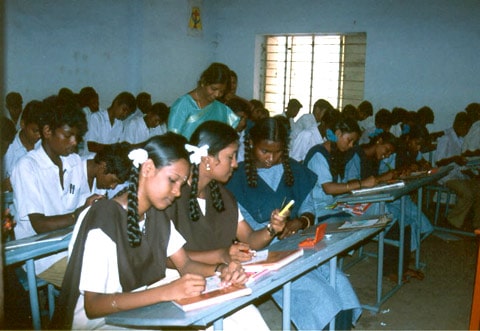Wipro Ltd has announced the official launch of the ‘Wipro App Life Contest 2013’, a 6-month long collaborative event for engineering and science graduates in India to develop their ‘dream app’. The Wipro AppLife Contest launched in 2012, is a unique crowdsourcing-cum-engagement initiative for students to showcase their creativity and expertise in developing mobile applications for consumers and enterprises. Online registrations opened on July 11, 2013 and will continue till December 20, 2013.
The ‘Wipro AppLife Contest’ is aimed at igniting the imagination of students and making them early starters in the mobile application development space. Young tech-enthusiasts will be given the opportunity to show off their app-vision, using futuristic technologies like iOS, Android, HTML 5 and other open source platforms; building, designing and testing bespoke apps geared at smartphones and tablets, while receiving constant guidance and support from Wipro mentors. The contest will be hosted on Wipro’s ‘Campus Arena’ portal, a social learning network aimed at fostering long-term engagements between campuses and the company.
“The Wipro AppLife contest germinated from the need to equip future engineers with the knowledge and right skill set in application development, and prepare them for the next wave of technology adoption”, said Rajeev Kumar, Global Head – Fresher Hiring, Wipro. “We had an overwhelming number of students participate in the first year and going by the entries received so far, we are confident of seeing an equally competitive number this year. We aim to make the AppLife contest a one-of-its kind initiative by providing students effective mentoring strategies, tools and framework to design the perfect mobile app.”
The year 2012 saw over 2000 students register for the contest. The 6–month long contest involved over 30 hours of training by mentors from Wipro’s mobility training academy and 45 collective hours of coding by the students. A total of 25 apps were conceptualized and developed at the end of the contest, and some of the apps created were considered for real-time application development among customers. In a shared first place, Saranath KJ from Velammel College of Engineering and Parathasarathy Nagarajan of AIHT were crowned as the Wipro AppLife Coders for 2012, for developing apps in the areas of Google maps and Memory booster. Mayank Diwakar from BSMIT and Prashant Jain from GLA University, whose apps were centered around gaming and ticket reservations came in a close second and third place.
The contest is open to all final and pre-final year students of Wipro accredited engineering colleges and all offered candidates across India.


































